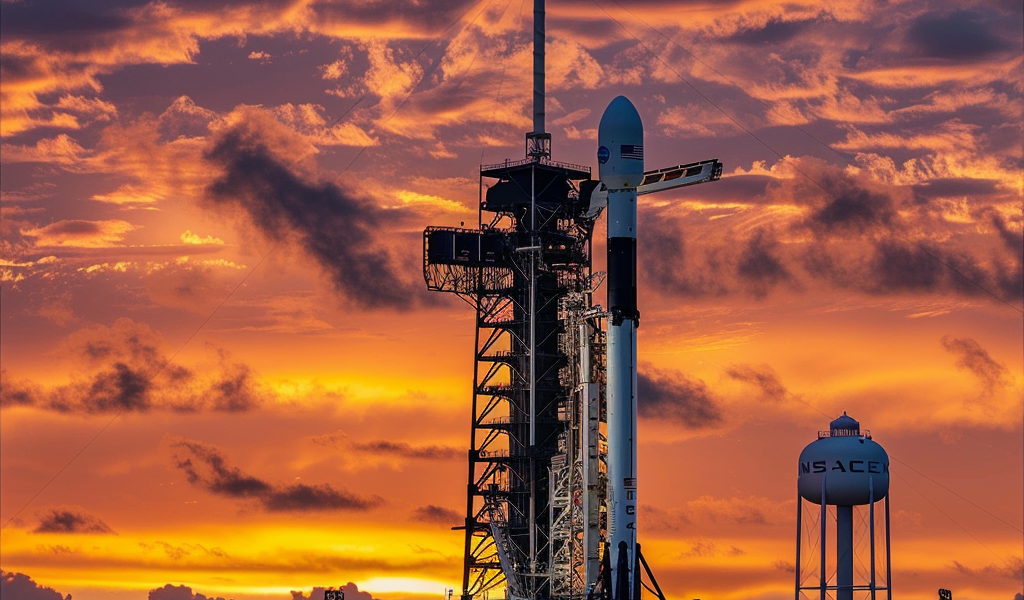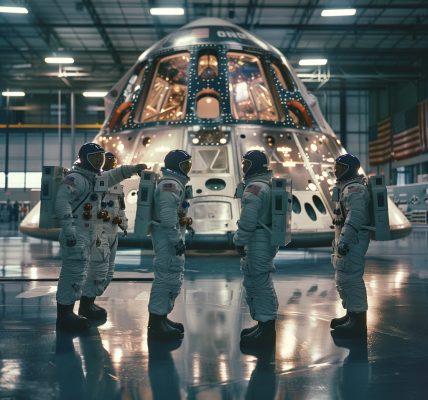NASA is on track to launch its Crew-9 mission in mid-August 2024, despite recent challenges involving the Falcon 9 rocket. The mission, which includes a team of four astronauts, is currently scheduled for liftoff on August 18, 2024, following a thorough investigation into a prior upper stage anomaly that temporarily grounded the rocket.
During a briefing on July 26, NASA officials confirmed their target launch date, which had been uncertain due to the anomaly that occurred during a Falcon 9 Starlink mission. The incident caused a 15-day grounding of the rocket, raising questions about the safety and reliability of the launch vehicle.
NASA commended SpaceX for its transparency throughout the investigation process, particularly regarding the modifications being implemented to prevent a recurrence of the issue. The anomaly was traced back to a crack in a sensor line, which allowed liquid oxygen to leak, prompting a series of changes to the upper stage of the Falcon 9.
Steve Stich, the manager of NASA’s commercial crew program, emphasized the importance of a test-firing of the modified upper stage, which is set to take place around July 30. This test will validate the new hardware and software modifications designed to enhance the rocket’s safety and performance. Stich noted that the team would conduct a rigorous certification process for these changes before proceeding with the Crew-9 mission.
The changes include hardware adjustments and a software update that will eliminate reliance on data from the removed sensor. NASA plans to present these modifications to the program control board for approval and establish a baseline for the Crew-9 mission.
Fortunately, NASA will benefit from several Falcon 9 launches utilizing the modified upper stage before the Crew-9 launch. SpaceX has already completed three successful launches with the upgrades, all of which carried Starlink satellites. Additionally, a Cygnus cargo spacecraft is scheduled to launch to the International Space Station (ISS) as soon as August 3, 2024, further testing the modified system.
The Crew-9 mission will feature a talented crew comprising NASA astronauts Zena Cardman, Nick Hague, and Stephanie Wilson, along with Russian cosmonaut Alexsandr Gorbunov. During a separate briefing on July 26, the astronauts expressed their confidence in the Falcon 9 rocket and the SpaceX team, stating that they had no reservations about launching just weeks after the upper stage anomaly.
Hague, who serves as the pilot for the Crew-9 mission, shared his strong belief in the team’s capabilities and the thoroughness of their approach to ensuring safety. The crew’s optimism reflects the extensive preparations and rigorous testing that have become hallmarks of NASA’s commercial crew program.
As the launch date approaches, all eyes are on NASA and SpaceX as they work together to ensure a successful Crew-9 mission. The collaboration between the two organizations has been pivotal in advancing human spaceflight capabilities, and the upcoming launch is expected to further enhance the operational capacity of the ISS.
In summary, NASA is moving forward with the Crew-9 mission, demonstrating resilience and commitment to safety in light of recent challenges. With a carefully planned timeline and a dedicated crew, the mission is poised to contribute significantly to ongoing research and exploration efforts in low Earth orbit.





